A war for oil
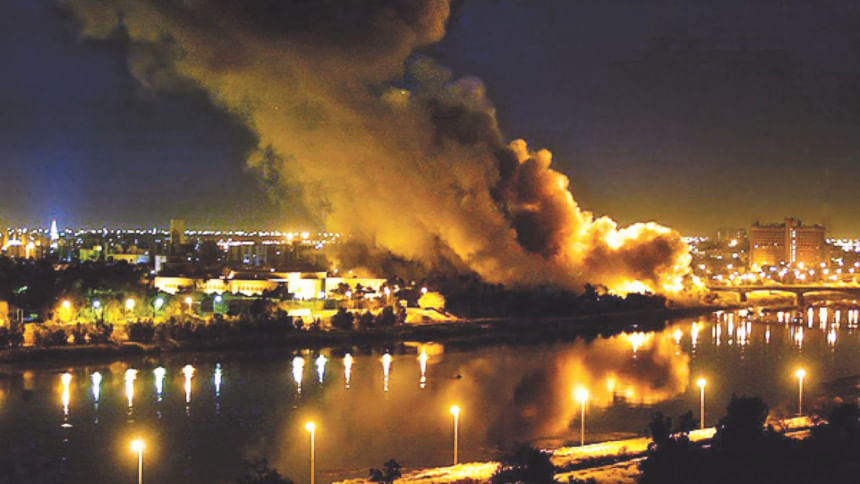
This month 15 years ago, an unjust and illegal war was unleashed on Iraq by the US-led coalition that has fundamentally changed the world and made it even more risky. This most important event in modern time has fragmented the whole Arab land, obliterated much of its history and culture and changed lives for tens of millions, probably forever. The Daily Star revisits this war on Iraq from today with a 12-part series.
The council members sat grim faced in the chamber of the UN Security Council. On the screen in front of them was projected an image with the words: IRAQ: FAILING TO DISARM: Denial and Deception.
Words like "accumulation of facts and disturbing patterns of behaviour" boomed in the chamber. The date was February 5, 2003. The speaker, US secretary of state General Colin Powell.
Months before, the US had started to look for the casus belli, a justification of war, to invade Iraq and bring about a "regime change", get rid of Saddam Hussein. Despite US efforts, western allies were not convinced that Iraq had WMDs, or it had any intentions of attacking Western interests or the United States. Long time US allies like the governments of France, Germany and New Zealand argued there were no evidences to support US claims.
There were worldwide protests and anti-war rallies against the invasion of Iraq. The largest ever anti-war rally of three million people, according to the Guinness Book of World Records, was held in Rome. Between 3 January and 12 April, 2003, 36 million people across the globe took part in 3,000 protests against the Iraq war, according to French academic Dominic Reynié.
On that day, in the UN Security Council, the US was determined to prove its cause. This was its presentation before the world community to persuade them that Saddam Hussein was amassing WMD, Weapons of Mass Destruction, and was seeking to acquire nuclear capabilities to attack western interests. As Colin Powell pointed out pictures on the screen claiming those to be of biological weapons production facilities on wheels to escape UN inspectors, the whole world listened to his speech full of charged words.
Colin Powell was to address the press after his presentation outside the Security Council chamber where a tapestry version of one of the world's greatest anti-war arts, the "Guernica" by Pablo Picasso hung on the wall. The day before the presentation, the "Guernica" was covered up with a blue curtain printed with UN logo.
UN officials denied they were intentionally hiding the piece of art that made a symbolic statement about the horrors of war and the art of diplomacy. But it was a statement after all. That diplomacy had lost, war had won.
Colin Powell stated during his presentation: "We know that Saddam Hussein is determined to keep his weapons of mass destruction; he's determined to make more. Given Saddam Hussein's history of aggression ... given what we know of his terrorist associations and given his determination to exact revenge on those who oppose him, should we take the risk that he will not some day use these weapons at a time and the place and in the manner of his choosing at a time when the world is in a much weaker position to respond? The United States will not and cannot run that risk to the American people. Leaving Saddam Hussein in possession of weapons of mass destruction for a few more months or years is not an option, not in a post–September 11 world."
A little over a month later, on 20 March, the Iraq invasion was launched with a bombing of the presidential palace at Baghdad that would eventually tear asunder Iraq, the middle East and indeed the world and kill an estimated 151,000 to 600,000 Iraqis in the first 3-4 years of conflict, and injure and maim many thousands. There were 21 days of major combat operation. But it was only the beginning of an endless war.
A WAR FOR OIL
Much after the invasion was complete, and even much after, in some estimations, about a million lives, mostly innocent, were lost, it is now clear that the Iraq war was not about Saddam Hussein's alleged Weapons of Mass Destruction (WMD). Saddam actually did not possess any such weapons. But then why was this massive and indiscriminate attack launched that left the over 5,000-year-old civilisation in ruins and mired in sectarian violence?
The answer, in short, is oil. Secret memos and piles of other evidences suggest the war was actually to exploit Iraq's huge oil reserves, second in the world after Saudi Arabia at a proven 115 billion barrels that would probably well be the largest deposit as suggested by big oil companies and Iraqi officials.
WHY IS IRAQ OIL SO ATTRACTIVE?
It is not only the vast quantity but quality also that makes Iraq's oil of special attraction. It commands premium price in the world market because of its high carbon content, lightness and low sulfur content.
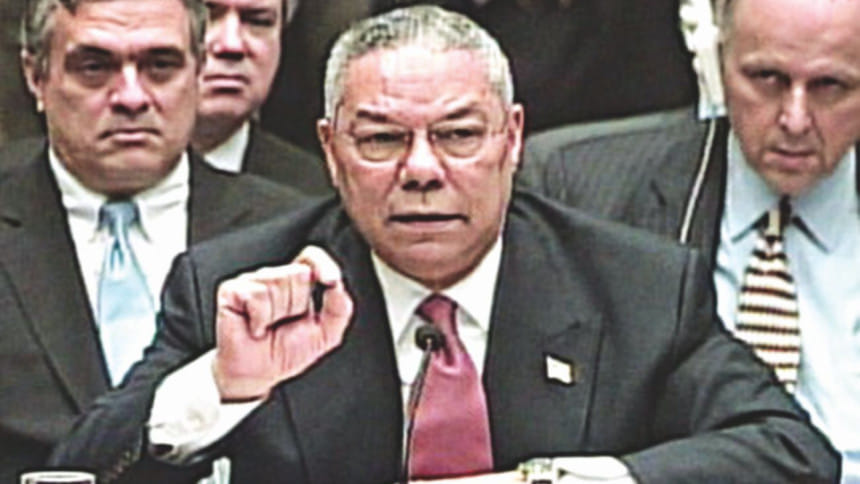
Iraq today posses about 11% of the world's total oil reserve. The Energy Information Administration of the US Department of Energy has indicated that Iraqi reserves could possibly total over 400 billion barrels with new explorations.
Iraqi oil production cost is also one of lowest in the world. Its wells are vast and oil is found at a shallow depth at high pressure. This makes oil exploration much cheaper than any other country except Saudi Arabia. While it costs about $1-$1.5 to produce one barrel of Iraqi oil, it costs about $5 to extract Omani or Malaysian oil. For Mexico or Russia the cost runs even higher at around $6-8 a barrel.
So Iraq remains a prized jewel for oil majors with recoverable oil worth about $3.125 trillion. If under the new law, the exploration companies split this volume 50/50 with the government, their profit a year would run up to $29 billion.
Gas, though not as plentiful as oil, is nevertheless a no less a factor. In 1996, Gaz de France and ENI of Italy formed a consortium to lay a pipeline from Iraq to Turkey for supply to Europe. But ultimately this project could not go through because of UN sanctions against Iraq.
OIL POLITICS
The pull of Iraq's lucrative oil reserves coincided with the goal of the US National Security Policy that defines free flow of oil to America as a priority that must be ensured even with military might, if necessary. President George Bush, the first, had put this down very clearly as did President Bill Clinton. It was further strengthened by Bush, the second. His vice president Dick Cheney, who also co-owns oil services firm Halliburton that bagged huge contracts in Iraq after the invasion, summed up US security strategy as ensuring "diverse and free supply of oil".
Such a policy obviously necessitated a close and symbiotic relationship between the government machinery and the oil companies that can be traced back to the time of the famous John D Rockefeller who owned Standard Oil.
Rockefeller, in his 1909 memoir "Random Reminiscences of Men and Events" wrote: One of our greatest helpers has been the State Department. Our ambassadors and ministers and consuls have aided to push our way into new markets in the utmost corners of the world.
The Second World War made the case for oil even more urgent as the US broke its policy of isolation in global affairs and joined the war. Uninterrupted oil supply became the key to winning the war and both the Germans and the allies started bombing each other's supply ships and securing oil fields in the Arabian Peninsula. Both the US and the UK competed to gain primacy in the newly-discovered Saudi Arabian oil fields. Excluded from the main grounds, the French zeroed in on the African oil with coups, murders, bribes and wars to gain control.
Since the Second World War, all the US presidents, beginning from Truman to Nixon to Reagan, followed military and security policies that also served to protect the interests of the oil companies. The 1973 oil crisis when the Arab states proclaimed an oil embargo after the Arab-Israel war, sent a shockwave across America and made the importance of securing sources of cheap Gulf oil all the more crucial. Washington even seriously considered sending a military strike force to seize oil fields in Saudi Arabia, Kuwait and the UAE.
As if to carry out just such a task in such an eventuality, President Jimmy Carter formed the US Central Command in 1979, a permanent military force designed to intervene in the Middle East on short notice.
So when Saddam Hussein cut off this "uninterrupted flow of oil" as sought by the US policy by nationalising the country's oil industry in 1972, it was also a shock for America. The American and British oil companies lost their business which they controlled since oil was discovered in Iraq in the late 1920s.
The irony is a young Saddam Hussein was recruited by the US intelligence services in 1959 to stage a coup against the then Iraqi prime minister Abd al-Karim Qasim who, as a nationalist leader, had threatened to renegotiate oil production terms with the US oil companies.
What made matters worse is that Iraq in the 1990s started negotiating with French, Russian, Japanese and Chinese companies for production sharing as Iraq desperately needed investment and technology. But these deals eventually fell through because of UN sanctions.
The US and UK companies were more than happy with the sanction because that kept their competitors off the Iraq oil. But as the sanction became weaker in the late 1990s, the oil majors got nervous and weighed in with the Washington policy hawks' idea of invading Iraq.
As lie after lie were manufactured in Washington about Saddam's non-existent Weapons of Mass Destruction to build the case for invasion, Iraqi dissidents opposed to Saddam's regime were brought together by the US under the banner of Iraqi National Congress (INC). The idea was once Saddam was ousted, a client government fully controlled and backed by the US would comply with its demands for full control over Iraq's oil.
However, the biggest stumbling block in fulfilling that ambition was the nationalisation law of Iraq oil, so it needed to be reversed.
The INC leaders came handy for Washington policymakers now as they spoke out in agreement with Washington on the need to change the law.
Faisal Qaragholi, who was heading the INC's London office, told The Washington Post before the war: We will review all these agreements, definitely. Our oil policies should be decided by a government in Iraq elected by the people.
Ahmed Chalabi, another INC leader who later became Iraq's interim minister for oil, said he would like to see a US-led consortium to develop Iraq's oil fields.
"American companies will have a big shot at Iraqi oil," Chalabi said. This meant the nationalisation policy would be changed once Saddam was removed.
THE NEOCONS IN THE SHADOW
The role of the neoconservative lobby in the Iraq War has been discussed widely in the US. The neoconservatives, or neocons, operate on a blend of liberalism and hawkish foreign policy. The neocons made them entrenched in the Bush administration. A central postulate of the Bush foreign policy has been the security of Israel. Both the domestic Israel lobby and Bush administration believed removing Saddam would lead to a "domino effect of liberalisation that would simultaneously fulfill the aims of increasing Israel's security and the wider aims of the Bush doctrine."
The force behind the Iraq War was fueled by neoconservative intentions. Review of neocon literature, speeches, and policy papers show "…neocons were its architects and chief proponents."
In his book, The Road to Iraq: The Making of a Neoconservative War, Muhammad Idrees Ahmad provides a thoroughly detailed description of how the neocons were obsessed for decades with toppling Saddam's regime and they used their magazines, think tanks and ad hoc committees to push their ideological agenda "using the levers of the state and the media in pursuit of that agenda".
Deputy defense secretary Paul Wolfowitz argued for invasion of Iraq only four days after the 9/11 attack at New York.
Ahmad writes, the war was "conceived in Washington, but its inspiration came from Tel Aviv." It was not in the geostrategic interest of the US but it served the Israeli interest in removing a political enemy and it used all its might to pursue that policy.
Neocons like Wolfowitz, Douglas Feith, Richard Perle, Lewis Libby, John Bolton and others neocons maintained a very close network and worked to convince the Bush administration to attack Iraq.
Mearsheimer and Walt, two preeminent realist scholars in international relations theory, maintain that
both Israeli leaders and the Israeli lobby in the US urged the Bush administration to invade Iraq.
A neoconservative think tank, The Project for the New American Century (PNAC), was based in Washington, D.C. that focused on the US foreign policy. Observers have suggested the PNAC played a key role in shaping the foreign policy of the Bush administration, particularly in building support for the Iraq War. Of the 25 people who signed PNAC's founding statement of principles, 10 went on to serve in the administration of George W. Bush, including Dick Cheney, Donald Rumsfeld, and Paul Wolfowitz.
Kristol and Kagan of PNAC advocated regime change in Iraq throughout the Iraq disarmament crisis.
A HAND IN GLOVE RELATIONSHIP
US and UK oil companies always maintained a close link with their governments and it happened so often that either the top policymakers owned oil firms or the oil company top brasses worked for the government.
For example, president George W. Bush and his father were both chief executives of their own oil companies. Vice president Dick Cheney was the CEO of Halliburton, the largest US oil-services company, and national security advisor Condoleezza Rice was a director of Chevron Texaco.
On the other hand, the British government itself held a majority stake until 1987 in British Petroleum (BP), one of the five oil majors of the world. Then prime minister Tony Blair, who lied to his people to join the US-led Iraq invasion, and BP CEO Lord Browne were so closely bonded that the press called the company "Blair Petroleum."
The Institute for Policy Studies has released a report based upon secret diplomatic cables just declassified by the National Archives and internal communications of the Bechtel Corporation, America's largest construction and civil engineering company, that showed the key players in the Iraq war such as Donald Rumsfeld, Vice President Dick Cheney, known as the hawks in Bush cabinet, and other former Reagan administration officials Roger Robinson, Judge William B. Clark and Robert McFarlane, were all closely involved in issues relating to Iraqi oil as far back as the1980s.
The report titled "Crude Vision: How Oil Interests Obscured US Government Focus on Chemical Weapons Use by Saddam Hussein," shows how White House officials on a mission to discuss Saddam's chemical use in Iran in mid 1980s completely sidestepped the issue. Rather they discussed how Bechtel can secure a $2-billion oil pipeline, running from the Euphrates oil fields in southern Iraq to Jordan.
Today, Bechtel is one of the two leading contractors for "reconstruction" of Iraq.

 For all latest news, follow The Daily Star's Google News channel.
For all latest news, follow The Daily Star's Google News channel. 

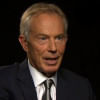
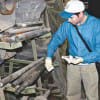

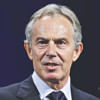

Comments